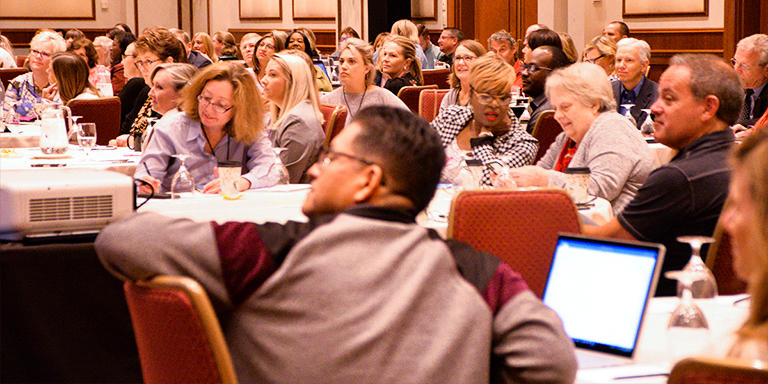SHARE: NASBA’s National Registry Summit, September 24-25 in Indianapolis, drew more than 150 attendees representing course sponsors, developers, government bodies, State Boards and CPA firms to consider “Accelerate to innovate!” The program not only covered states’ continuing professional education requirements and compliance concerns, as described by NASBA staff, but also research results on how to optimize learning, conference management, virtual reality learning, emotional intelligence, course design and even a “sponsor in the spotlight “ segment. Educational consultant Kenneth Wesson told the conference: “For students who started a four-year computer science (or any technical degree) in 2016…50 percent of what they learned in their first year of study was outdated by their third year of college (2019), and 75 percent will be of little/no value upon their graduation next spring 2020.” He observed: “We are tasked with preparing our students for future occupations that (1)have yet to be created, (2) we have neither encountered nor envisioned in any significant detail, and (3)demand skill sets that will be tethered together in real world contexts (but not in our classrooms).” Mr. Wesson listed as needed 21st Century skills: collaboration, communication, critical thinking, creativity (driven by curiosity, imagination and visualization), and one’s ability to make connections. Summit attendees were briefed by Maria L. Caldwell, NASBA Chief Legal Officer and Director of Compliance Services, on the capabilities of the NASBA CPE Audit Service and the CPE Rules Engine Service. The CPE Audit Service is available to Boards of Accountancy for use in auditing CPE compliance of their CPAs. The CPE Rules Engine Service is available to organizations and firms to help with ensuring compliance of their CPAs with various state CPE rules. Samples of the types of reports Boards and other users can obtain from the systems were displayed and explained. Jessica Luttrull, Associate Director of the National Directory, summarized the changes that are being proposed for the NASBA/AICPA Statement on Standards for Continuing Professional Education Programs, which are reviewed and evaluated every two years. The latest proposed changes are to be voted on by the NASBA and AICPA Boards of Directors at their upcoming meetings, and will be appended to the Uniform Accountancy Act once approved. Besides adding clarifications, examples and minor modifications, other changes being proposed include:
If approved by the NASBA and AICPA Boards, the new standards will have an effective date of December 31, 2019. |

